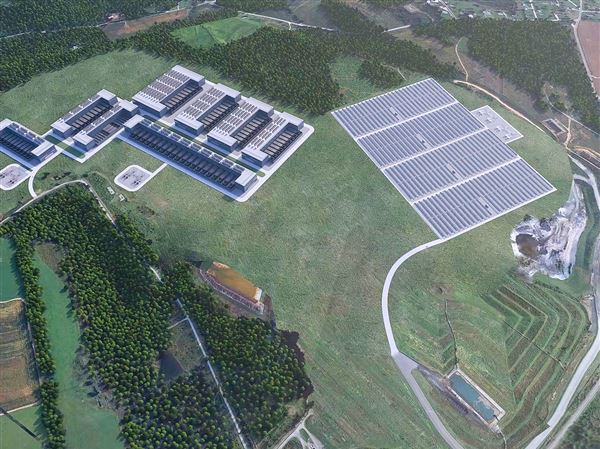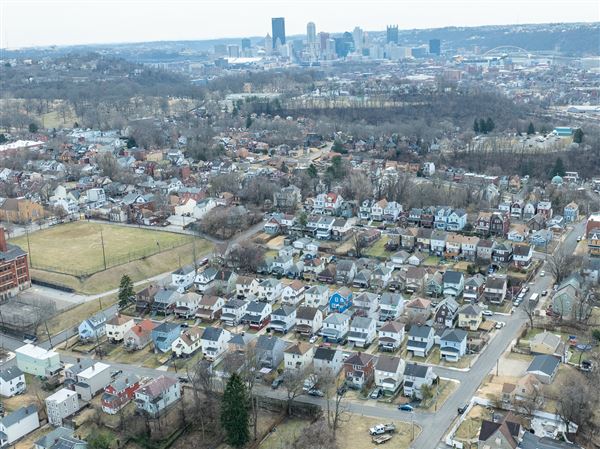JAKARTA -- Some recent visitors braced for Jakarta's notoriously ferocious traffic were pleasantly surprised with their swift passage from the bougainvillea-draped airport through the city's long boulevards and broad traffic circles.
The capital of a nation that's home to the world's largest Muslim population was uncharacteristically quiet as it embarked on a four-day weekend celebrating the Christian feast of the Ascension.
The break in commerce for a Christian commemoration reflected the island nation's Dutch colonial heritage and, more to the point, the relatively open and embracing strain of Islam that dominates the world's fourth-largest nation. Muslim women routinely appear in public with their heads uncovered. Full-length burkhas are much less common than in the Middle East or even India. Rock music, indigenous MTV and shows such as "Indonesian Idol," are vital parts of urban popular culture.

Click photo for larger image.
James O'Toole is the politics editor for the Post-Gazette (jotoole@post-gazette.com, 412 263-1562). He recently visited Indonesia on a study tour sponsored by the East-West Center.
Related chart
In recent years, however, dozens of smaller jurisdictions across the country have taken advantage of the nation's renewed and newly decentralized democracy to enact laws mandating various Islamic-rooted practices, such as prohibitions on alcohol or mandates for headscarves on women.
In keeping with what some Westerners see as an increased "Arabization of culture," some clerics have preached that it is a breach of Muslim faith to wish Christians "Merry Christmas."
Although Muslims make up roughly 90 percent of its population, Indonesia had been more lightly touched than other large Islamic countries by the wave of fundamentalism that rose worldwide through the last decades of the 20th century. Now there are clear signs that stricter observance of Islam and an overlapping, but by no means identical, affinity for a fundamentalist, Middle Eastern version of the religion are on the rise in the island nation.
There is widespread debate on the extent and significance of this trend on Indonesia's future and its relations with its neighbors. And while questions about the intersection of secular and religious culture are significant, they are not the only ones, or, according to many observers, the most important ones occurring at this pivotal point in Indonesia's history.
One glimpse at the forces tugging at Indonesia is found miles beyond the omnipresent smog of the capital. East along the northern coast of Java, past forests of rubber trees and oceans of brilliant green rice paddies, a complex of modern buildings suddenly looms over the flat rural ricescape. The raw gray shell of what will be one of the largest mosques in Asia dominates multistory dormitories. This is Al-Zaytun, a pesantran, or Muslim boarding school, temporary home to more than 8,000 students from across Indonesia and as far away as Somalia and South Africa.
The students, from primary to the university level, will have memorized the Quran by the time they are 18. But this bears little outward resemblance to many of the fundamentalist madrassas that have sprung up across the Middle East and Asia.
From all appearances, the institution enthusiastically embraces modernity. Students cite career goals such as engineering, medicine and agronomy. Staff members proudly show visitors bioengineering labs where they genetically screen and cross-breed the species of trees that the institution has planted by the hundreds of thousands on the vast acreage surrounding the school. Staff members call the tree-planting program "green gold," claiming that the new foliage has actually changed the micro-climate surrounding the school. The bioengineering lab also seeks the optimum strain of grass to feed the cows raised on site -- all part of its ethos of self-sufficiency. The school boasts of raising much of its own food supply.
University-level students help in the teaching of younger students. Last month, under the proud eye of its leader, Panji Gamilang, its workers steered heavy equipment around a vast construction project, building a dam to corral rainy season downpours for irrigation year-round.
Students at the school say they are taught an open, tolerant version of Islam, eschewing divisions such as Sunni and Shiite and accepting adherents of other religions.
Reflecting on the school's legacy last month, two university students, one majoring in English and education and the other in agronomy, joined in a confident prediction that it was only a matter of time before Al-Zaytun produced a future president of Indonesia. To the casual visitor, the students and the institution that has grown with them present a seemingly impressive tableau, an example of modern Islamic education.
But not all Indonesians accept that view. One book, "A Glance at Al-Zaytun," by Al Chaidar, brands the school as a cult of personality surrounding Mr. Gumilang, who some have charged has links to a banned militant group, Darul Islam. The 2000 book depicted the moderate image the school seeks to project as a facade concealing a training ground for the shock troops of a new caliphate. Mr. Gumilang has also been accused of having financial links to the ousted regime of the former dictator Suharto. The controversial educator has denounced such reports in the Indonesian press. The Jakarta Post quoted him in 2002 as branding such charges as "all rubbish."
After the 2004 elections, the first direct presidential elections in the nation's history, a report issued by the election monitoring arm of former President Jimmy Carter's Carter Center questioned thousands of ballots cast at Al-Zaytun for the presidential candidate of a party linked to the former Suharto regime. The votes were eventually thrown out.
In an interview with a group of American journalists last month, the charismatic Mr. Gumilang was charming and expansive in his vision for the school's future but adroit in ducking questions about the school's funding, financial origins or political ties. While his staff said that the school's tuition supports less than half the cost of the education it provides, Mr. Gumilang waved off questions about the balance of its revenue, insisting that it was self-supporting, helped by "small donations" from "friends."
A few days later, former Indonesian President Abdurrahman Wahid, a moderate Muslim scholar as well as a key figure in the nation's transition to democracy, told the journalists that the school was the beneficiary of Saudi and Kuwaiti funding, as well as the support of a former Suharto intelligence chief.
Mr. Wahid, also known as Gus Dur, spoke in the cramped office of the Wahid Foundation, which promotes moderate Islam, along with a related group, Libforall. Mr. Wahid has warned of the dangers of a radical shift in Islam, both in his country and abroad. But, while citing multiple threats to his country's new democracy, the nearly blind leader invoked Richard Nixon in saying that he was ultimately confident that "the silent majority" of Indonesians would continue to support moderation, rejecting minority agitation to impose an Islamic state on a country that, through dictatorship and democracy, has successfully balanced its Muslim identity and a largely secular government.
One tacit sign that the country continues to support that equation comes from a political party sharply at odds with Mr. Wahid's point of view.
The Prosperous Justice Party, an avowedly Islamic party with intellectual ties to Egypt's Muslim Brotherhood, has achieved clear political momentum in recent years, its popularity growing particularly among the nation's university students.
But in crafting its political appeal, it has sought votes across sectarian lines by casting itself more as a force against corruption than as any sort of vanguard for a more traditional Islamic state.
At its Jakarta headquarters, the party's president, Tifatul Sembiring, insisted that he "couldn't imagine" Indonesia becoming an Islamic state with shariah as the formal basis of its laws. He noted that the party has gained Christian support through its anti-corruption platform.
"We are a party of morality, not of a specific religion," he insisted.
He denounced in particular one militant group, the Islamic Defenders Front, or FPI, that is known for violent street demonstrations, including attacks on bars and entertainment establishments.
Given the signs of more overt public adherence to Muslim traditions and the nation's recent outbreak of terrorist attacks, questions about the direction of Indonesia's government and the nature of its Islamic character are bound to persist, just as the lack of transparency about Al-Zaytun will nurture questions about its motives.
While such questions are important, however, some Indonesian analysts suggest that they are not the most critical ones to ask about the nation's future. In particular, they said imposing a struggle-for-the-soul-of-moderate-Islam narrative on the country's complex dynamics obscures other fundamental issues for a fragile democracy still emerging from the trauma of the Asian financial crisis 10 years ago. The trajectories of Indonesia's economy and democratic institutions are likely to have more influence on the extent to which its 235 million people will be vulnerable to calls for radicalism of any persuasion.
Defense Minister Juwono Sudarsono said that the politically influential army was devoted to a tradition of moderate Islam. Any public sympathy for terrorism, he said, had been undercut by the televised images of the many Muslim victims of bombings in Bali and elsewhere. He pointed out that the country's per capita income had just crept back to the level of approximately $1,500 that it had reached before the economic collapse of a decade ago, and he said that the country's greatest challenge was extending a measure of prosperity to the 39 million Indonesians who exist on less than $2 a day.
Meidyatama Suryodiningrat, managing editor of the English language Jakarta Post, argued that a debate over the appropriate extent of Muslim influence was a healthy one, largely suppressed during decades of dictatorship.
But more immediate and crucial questions, he said, involve the extent to which the nation's still fledgling democracy will take root, and what role the army will settle into in the post-dictatorship era.
He dismissed the prospect of a shift toward an Islamic state, suggesting that this would split the nation, which the army, sworn to defend the nation's identity, would never tolerate. While non-Muslim religions constitute relatively small minorities within Indonesia, they are geographically concentrated -- Hindus in Bali, for example, and Christians in Papua.
Speaking at the East-West Center in Hawaii recently, Alexander Downer, Australia's foreign minister, was uniformly upbeat about the prospects for his sprawling neighbor.
Mr. Downer said he saw a decrease in support for terrorism and a similarly welcome lowering of the army's political profile.
In a world worried about the rise of sometimes-violent radicalism within Islam, he said, "Indonesia is a counter-narrative ... the United States should recognize these changes in the Muslim world and embrace them. America should be excited by the democratic change in Indonesia and do all it can to make sure it's a success."
First Published: June 16, 2007, 12:15 a.m.














